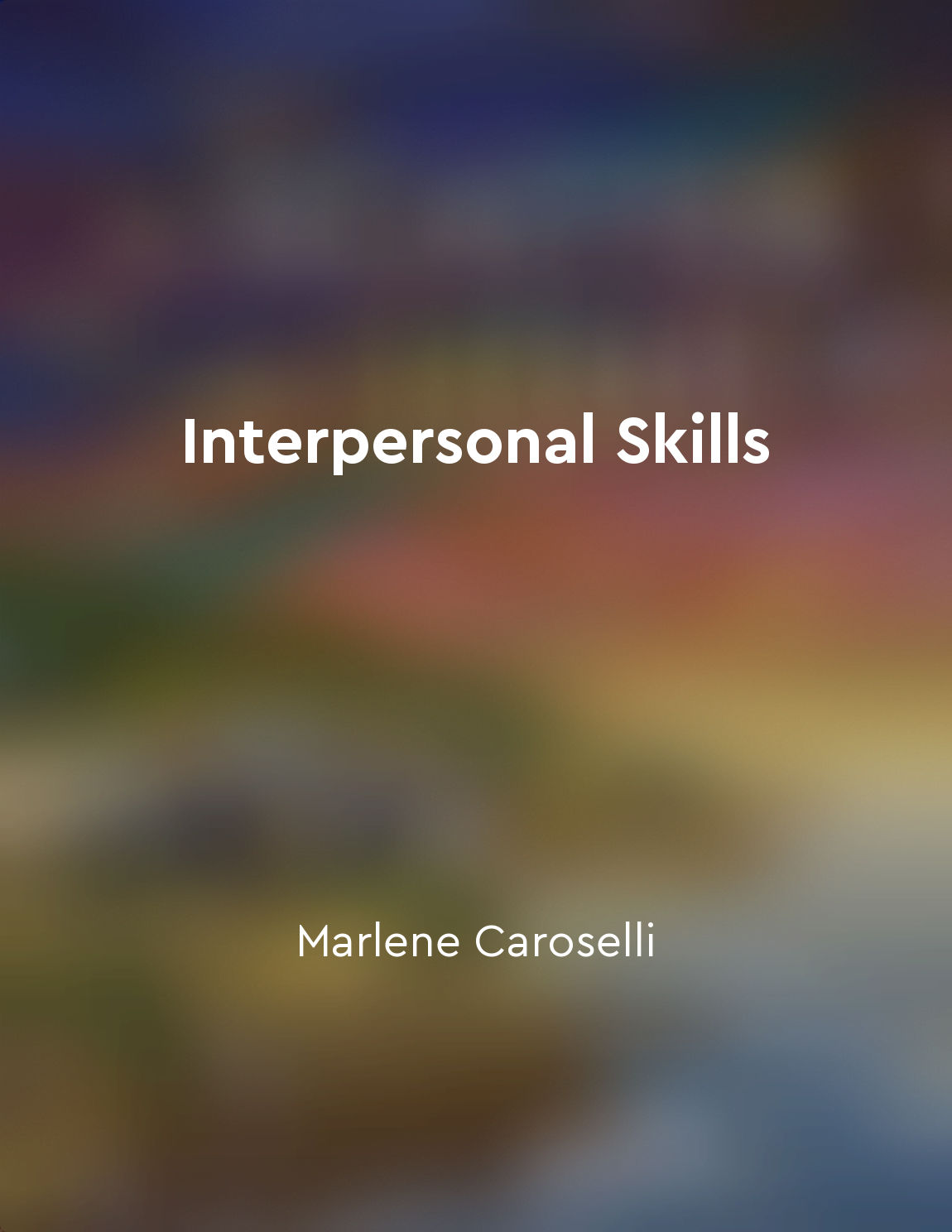Audio available in app
Look for common ground and areas of agreement from "summary" of Crucial Conversations by Kerry Patterson,Joseph Grenny,Ron McMillan,Al Switzler
When engaging in crucial conversations, it is essential to seek out common ground and areas of agreement with the other person. This allows you to establish a foundation of mutual understanding and respect, which can help to bridge any differences or conflicts that may arise during the conversation. By focusing on areas where you both agree, you can create a sense of unity and collaboration, rather than division and opposition. Identifying common ground also helps to establish a sense of connection and rapport with the other person. It shows that you are willing to listen and find points of agreement, rather than simply trying to impose your own viewpoint. This can help to build trust and openness in the conversation, making it more likely that both parties will be receptive to each other's perspectives and ideas. In addition, looking for common ground can help to defuse tension and conflict during a crucial conversation. By finding areas of agreement, you can shift the focus away from areas of disagreement and towards shared goals and interests. This can help to de-escalate any conflict or hostility that may be present, allowing for a more productive and constructive dialogue to take place. Furthermore, seeking out common ground can also help to generate creative solutions and new insights during a crucial conversation. By exploring areas of agreement, you may uncover new possibilities or alternatives that neither party had considered before. This can lead to a more innovative and collaborative approach to problem-solving, resulting in better outcomes for all involved.- Looking for common ground and areas of agreement is a crucial skill to master when engaging in difficult conversations. It can help to establish rapport, build trust, defuse tension, and generate new ideas, ultimately leading to more effective and successful communication. By focusing on areas of agreement, you can create a more positive and constructive dialogue that is conducive to finding common ground and reaching mutually beneficial solutions.
Similar Posts
Setting clear goals is crucial for effective communication
To communicate effectively, it is essential to have a clear understanding of the goals you want to achieve through your communi...

Share your own experiences to build rapport
Let's connect by sharing our personal experiences to create a bond. By opening up and sharing stories, we can build rapport and...
Embracing challenges as opportunities for growth
When faced with challenges in life, it is important to remember that they can be opportunities for growth. Instead of shying aw...

Feedback should be given constructively and timely
Feedback is an essential element of effective communication. It provides individuals with valuable insights into their performa...
Use specific examples to clarify concerns
Let's dive into the concept of using specific examples to clarify concerns. When we are faced with a crucial confrontation, it ...
Collaborate on finding a solution to the problem
In any crucial confrontation, it is essential to move from identifying the problem to collaborating on finding a solution. This...
Selfawareness is the foundation of emotional intelligence
Self-awareness is the bedrock of emotional intelligence. It is the ability to recognize and understand one's own emotions, as w...
Accountability is crucial for resolving conflicts
When conflicts arise, it is essential to hold individuals accountable for their actions in order to effectively resolve the sit...
Look for common ground and areas of agreement
When engaging in crucial conversations, it is essential to seek out common ground and areas of agreement with the other person....

